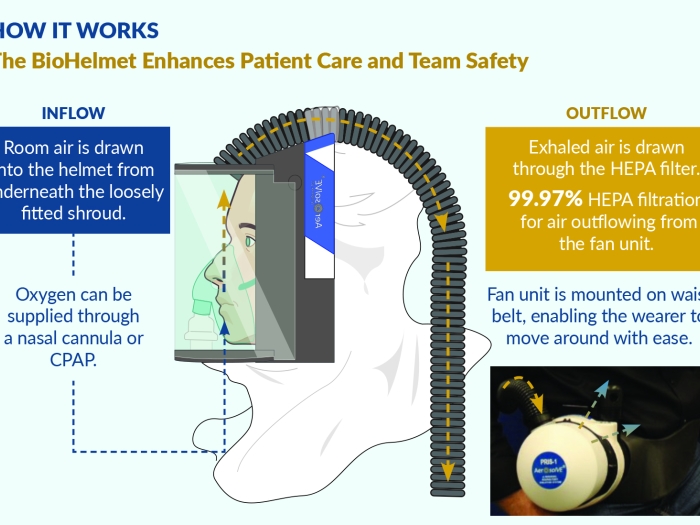
Associate Medical Director of Emergency Critical Care Center (EC3)
Clinical Assistant Professor of Emergency Medicine
Taubman Center B1-354-K 1500 E Medical Center Drive, SPC 5303
Ann Arbor
MI, 48109-5303 United States
[email protected]
Ann Arbor
MI, 48109-5303 United States
Available to mentor
Nathan Haas, MD

Clinical Assistant Professor
I am a practicing Emergency Physician, and I work clinically in the Adult Emergency Department and the Emergency Critical Care Center (EC3), where I serve as Assistant Medical Director.
-
Advanced Research Methodology Evaluation and Design (ARMED)Society for Academic Emergency Medicine (SAEM), United States, 2019
-
Emergency Medicine ResidencyUniversity of Michigan, Ann Arbor, 2018
-
Chief Resident, Emergency MedicineUniversity of Michigan, Ann Arbor, 2018
-
Healthcare Administration Scholars ProgramUniversity of Michigan, Ann Arbor, 2018
-
Leadership AcadamyAmerican Academy of Emergency Medicine, United States, 2017
-
Research Honors ProgramLoyola University Chicago Stritch School of Medicine, United States, 2014
-
Leadership in Medicine ProgramLoyola University Chicago Stritch School of Medicine, United States, 2014
-
MDLoyola University Chicago Stritch School of Medicine, Maywood, 2014
-
BSUniversity of Illinois, Urbana-Champaign, 2009
-
Center MemberCaswell Diabetes Institute
My main research interests are the delivery of ED-based critical care, including assessing outcomes associated with our novel ED-ICU, management strategies for diabetic ketoacidosis (DKA), and out-of-hospital cardiac arrest.
-
2024 May 15;PresentationYou've got this! Best practices in the care of critically ill boarding patients (Critical care interest group sponsored)
-
Haas NL, Tonna JE. Resuscitation, 2023 Dec; 193: 110047Journal ArticleAge ain't nothing but a number.
DOI:10.1016/j.resuscitation.2023.110047 PMID: 37977346 -
Blackburn S, Haas N, Kocan MJ, Wood W, Menke N, Seyfried L, Chinn S, VandenBerg A, Ciarkowski S. 2023 Oct 24;Additional ScholarshipInpatient Alcohol Withdrawal in Hospitalized Patients Guideline; University of Michigan
-
2023 Oct 19;PresentationGlycemic variability following traumatic brain injury: utilizing a continuous glucose monitor in the golden hours to improve patient outcomes
-
Doan J, Perez S, Bassin BS, England P, Chen C-M, Cranford JA, Gottula AL, Hartley S, Haas NL. J Am Coll Emerg Physicians Open, 2023 Oct; 4 (5): e13036Journal ArticleImpact of emergency department-based intensive care unit on outcomes of decompensating boarding emergency department patients.
DOI:10.1002/emp2.13036 PMID: 37692194 -
Butler S. 2023 Sep 28;Additional ScholarshipPharmacy Services Management of Diabetic Ketoacidosis (DKA) In Non- Pregnant Adults In the Emergency Department (ED) / Emergency Critical Care Center (EC3) and Critical Care Medical Unit (CCMU) Guideline
-
Sell J, Haas N, Korley F, Cranford J, Bassin B. Western Journal of Emergency Medicine, 2023 Sep 25; 24 (6): 1049 - 1055.Journal ArticleEuglycemic Diabetic Ketoacidosis: Experience with 44 Patients and Comparison to Hyperglycemic Diabetic Ketoacidosis
DOI:10.5811/westjem.60361 -
Haas N, Sell J, Bassin B, Korley F. JEM Reports, 2023 Jun 1; 2 (2):Journal ArticleDiabetic ketoacidosis as a complication of immune checkpoint inhibitor therapy
DOI:10.1016/j.jemrpt.2023.100022

Research News
InspireRx, LLC., a spin-off company of the University of Michigan (U-M) Max Harry Weil Institute for Critical Care Research and Innovation, received over $2 million in Small Business Innovation Research (SBIR) grants to support further development of the AerosolVE BioHelmet, a compact negative pressure system for patients with highly contagious airborne respiratory infections such as COVID-19.